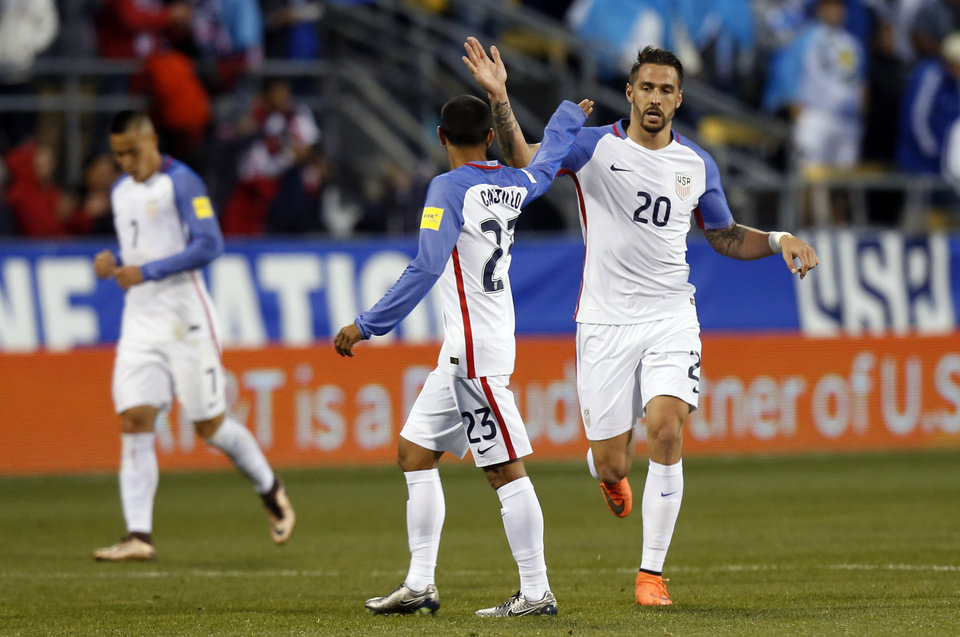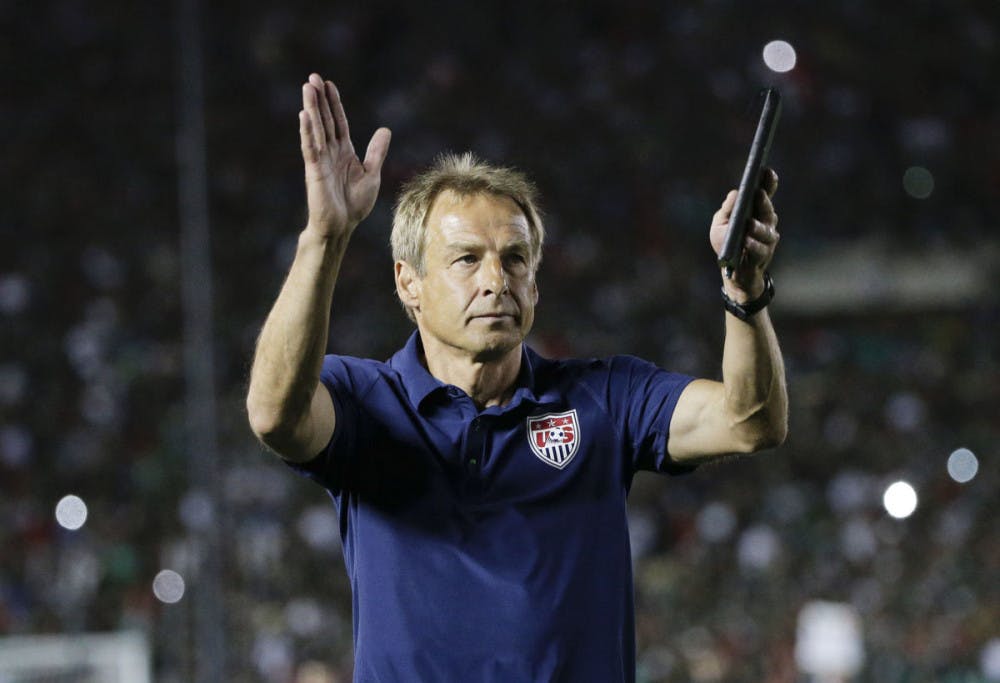By Rohan Ahluwalia
Staff Writer
The United States is known as a growing power in soccer. The country established itself as a World Cup regular in every tournament and the MLS rises in quality and popularity every season. However, recently, for those following the sport in America, times are not well.
The U.S. Men’s National Soccer Team is struggling through the World Cup qualifiers. In only the first round, the team has drawn against Trinidad and Tobago before losing to Guatemala, 2-0. The team recently beat the Guatemalans, 4-0, at home, but the previous two results meant that any result that wasn’t a victory would have seen the U.S. in serious doubt of qualifying for a World Cup. At the same time, the United States Under-23 (U-23) men’s national soccer team failed to qualify for the Summer Olympics this summer in Rio, losing to Colombia in a qualifying playoff in a self-destructing nature last Tuesday, March 29.

This is the first time since the 1960s that the U.S. failed to send a soccer team to the Olympics in consecutive tournaments. Many critics of U.S. Soccer have put the blame for the blunders of both the national team and the U-23s on U.S. Soccer’s technical director and Jurgen Klinsmann, the national team coach. He is being held accountable for turning a team that used to be known for using its speed and grit to grind out wins into a team of players that can’t complete simple passes anymore.
The head coach, hired in 2011, along with his reported lofty salary and promise to fans that he would bring about a change in the style the national team plays, has not bought him any friends.
Is it right to blame Klinsmann or is the problem going on in American soccer deeper than him? Critics like to compare this U.S. team to the one that played in the World Cup in 2010 under head coach Bob Bradley. Bradley’s team was lead by a core group of experienced veterans in defense and goal while also containing players that were in their prime, who played well for their teams in Europe. The current team does not have players who are currently succeeding in Europe. In addition, the core teammates of the 2014 World Cup, which included goalkeeper Tim Howard and captain Clint Dempsey, have declined rapidly, with no one able to step up to replace them.
Critics have also lashed out at Klinsmann over his comments in the past. He was interpreted as saying that players should opt to play in Europe, rather than in MLS, Klinsmann said in a team interview. However, is there anything wrong with that? In the past, the best American soccer players have been those who were playing with European sides.
The quality of the leagues in England, Germany, France, Spain and Italy are better than that of the United States, so having players from there is a benefit. Even now, the top players for the U.S., such as John Brooks, Fabian Johnson, Geoff Cameron, Bobby Wood and Aron Johansson, play in Europe, while two former top players for the team, Michael Bradley and Jozy Altidore, seem to have regressed since coming back to MLS.
Klinsmann also commented in a post-training interview about the youth structure in the United States for developing players. MLS and U.S. Soccer has not developed a good prospective American player in a while. Currently, the best prospects for the country reside in European academies. The top prospect, Christian Pulisic, plays for Borussia Dortmund while other prospects, such as Emerson Hyndman, Ethan Horvath, Rubio Rubin, Desevio Payne and Gedion Zelalem, all reside abroad.
The only prospects developed and discovered on American shores recently were Matt Miazga and DeAndre Yedlin, who played for the New York Red Bulls and Seattle Sounders, respectively. Both players now reside abroad and there doesn’t look to be any player currently in the MLS who could follow in their footsteps.
On the bright side, the MLS is trying to make a change. The league recently added minor-league affiliated sides to create a bridge between professional and youth soccer. A couple years ago, the U.S. Soccer development season expanded to a 10-month season, coach licensing courses were made stricter and more aligned with European standards and MLS added some roster rules to make the league more competitive.
Many of these new implementations were proposed by Klinsmann, the man who is currently being disparaged by the U.S. Soccer media. Presently, things with American soccer do not look good and it is under Klinsmann, but U.S. Soccer media and fans need to realize that this is all part of a process to modernize and revitalize the league.
The U.S. Soccer team still has a massive chance of qualifying for the 2018 World Cup and, if what Klinsmann proposed does come to fruition, not only would fans need to worry about the team qualifying, but also competing to win the whole tournament.







